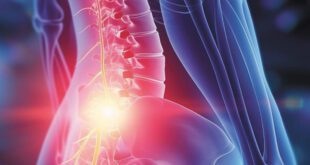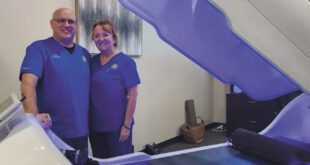 Each year, approximately 300,000 American women receive a breast cancer diagnosis that fundamentally alters their lives. While medical advances have dramatically improved survival rates, the journey doesn’t end when treatment concludes. Instead, survivors face a complex path of physical and emotional reconstruction that extends far beyond the oncology ward.
Each year, approximately 300,000 American women receive a breast cancer diagnosis that fundamentally alters their lives. While medical advances have dramatically improved survival rates, the journey doesn’t end when treatment concludes. Instead, survivors face a complex path of physical and emotional reconstruction that extends far beyond the oncology ward.
The post-treatment landscape presents unique challenges that traditional healthcare often overlooks. Chronic fatigue persists long after chemotherapy ends. Surgical sites develop restrictive scar tissue. Simple activities like reaching overhead or carrying groceries can feel overwhelming or impossible.
While medical teams excel at eliminating cancer, comprehensive recovery support frequently falls short. Physical therapy addresses immediate surgical healing, but what happens when patients are medically cleared yet feel disconnected from their own bodies? This gap leaves many survivors searching for ways to reclaim their physical confidence and emotional well-being.
The Hidden Struggles of Survivorship
Cancer treatment creates a profound disconnection between mind and body that extends well beyond physical symptoms. Surgical procedures, drain placements, tissue expanders, and radiation therapy can make the body feel foreign and unreliable. Many women describe feeling betrayed by their bodies or fearful of movement that might cause harm.
This psychological impact manifests physically through protective posturing, shallow breathing, and movement avoidance. The nervous system remains in a heightened state of alert, perpetuating tension and limiting natural healing processes.
Unlike conventional fitness approaches, Pilates meets individuals exactly where they are in their healing journey. Every exercise can be modified to accommodate physical limitations, emotional needs, and energy levels. Skilled instructors view each person holistically, understanding that recovery encompasses far more than regaining strength or flexibility.
The foundation of every Pilates session begins with conscious breathing. This simple yet powerful practice activates the parasympathetic nervous system, signaling safety to the body and mind. From this centered place, gentle movements gradually reawaken dormant muscle groups and restore confidence in physical capabilities.
The Science of Lymphatic Health
One critical yet often overlooked aspect of cancer recovery involves lymphatic system function. Unlike the cardiovascular system, lymphatic circulation lacks a central pump and relies entirely on muscle contractions, breathing patterns, and body movement to maintain proper flow.
Surgical procedures and radiation therapy can significantly compromise lymphatic drainage, increasing the risk of lymphedema and chronic swelling. Pilates excels through its emphasis on rotational movements and three-dimensional exercises. Spinal twists, arm circles, and multi-directional stretches create the precise muscle activation patterns needed to stimulate lymphatic flow.
Addressing Fascial Restrictions
Every surgical intervention leaves lasting changes in the body’s connective tissue network. Fascia can develop adhesions and restrictions that limit movement and create ongoing discomfort. Traditional stretching approaches may prove too aggressive for sensitive post-surgical tissue.
Pilates offers a gentler alternative through small, controlled movements that gradually mobilize fascial layers. Slow, spiraling motions combined with focused breathing help restore tissue hydration and flexibility over time. As fascial restrictions release, pain typically decreases while range of motion improves.
The Mind-Body Connection
The emotional impact of cancer extends far beyond treatment completion. Anxiety, depression, grief, and post-traumatic stress commonly affect survivors as they navigate their new normal. Pilates addresses these psychological aspects through its meditative qualities and emphasis on present-moment awareness.
In the quiet sanctuary of a Pilates studio, movement becomes a form of moving meditation. Focused breathing serves as an anchor to the present moment, while gentle exercises rebuild trust between mind and body. Many survivors report that Pilates provides their first experience of feeling calm and safe in their physical form since diagnosis.
Evidence-Based Results
Recent research validates what Pilates practitioners have observed for decades. A comprehensive 2020 analysis published in the Journal of Clinical Medicine demonstrated significant improvements in upper body function, fatigue levels, and overall quality of life among breast cancer patients participating in regular Pilates sessions.
However, these measurable outcomes only capture part of the transformation that occurs. The true magic lies in moments that resist quantification: the joy when someone lifts their arms overhead without pain for the first time in months, or the relief of taking a full, deep breath.
Real-World Transformation
Consider Sarah, a marketing executive who underwent bilateral mastectomy followed by reconstruction surgery. Post-treatment, she struggled with chronic shoulder pain, limited arm mobility, and overwhelming fatigue that made her professional and personal life feel impossible to manage.
Through consistent Pilates practice, Sarah gradually rebuilt her relationship with movement. Breathing exercises helped regulate her nervous system while gentle stretches restored shoulder flexibility. Core strengthening exercises improved her posture and reduced back pain.
The Path Forward
Cancer survivorship deserves more than mere maintenance of basic function. Survivors deserve the opportunity to thrive, to discover new strength, and to reclaim joy in physical movement. Pilates provides this opportunity through its intelligent, adaptable approach to exercise and healing.
Rather than pushing through intensity, Pilates invites exploration through intention. It encourages women to move with curiosity, breathe with awareness, and trust in their body’s remarkable capacity for renewal. In this patient, mindful approach to movement, healing becomes possible on multiple levels – physical, emotional, and spiritual.
For the hundreds of thousands of women navigating cancer recovery, Pilates offers hope, healing, and the promise that strength can be rebuilt one mindful movement at a time.
Club Pilates
(352) 421-5199
303 SE 17th Street, Suite 106
Ocala, FL 34471
 Central Florida Health and Wellness Magazine Health and Wellness Articles of the Villages
Central Florida Health and Wellness Magazine Health and Wellness Articles of the Villages



